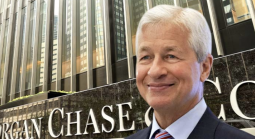Researchers Claim Bitcoin Price was Artificially Inflated Last Year
An academic with a history of spotting fraud suggests that the price of bitcoin may have been artificially inflated last year.
John M. Griffin of the University of Texas at Austin - Department of Finance, along with Amin Shams, also of that department, writes:
Abstract
This paper investigates whether Tether, a digital currency pegged to U.S. dollars, influences Bitcoin and other cryptocurrency prices during the recent boom. Using algorithms to analyze the blockchain data, we find that purchases with Tether are timed following market downturns and result in sizable increases in Bitcoin prices. Less than 1% of hours with such heavy Tether transactions are associated with 50% of the meteoric rise in Bitcoin and 64% of other top cryptocurrencies. The flow clusters below round prices, induces asymmetric autocorrelations in Bitcoin, and suggests incomplete Tether backing before month-ends. These patterns cannot be explained by investor demand proxies but are most consistent with the supply-based hypothesis where Tether is used to provide price support and manipulate cryptocurrency prices.
The paper "is likely to stoke a debate about how much of Bitcoin’s skyrocketing gain last year was caused by the covert actions of a few big players, rather than real demand from investors," writes Nathaniel Popper of the New York Times.
Bitcoin Price Hits Four Month Low After Currency Theft - LONDON (Associated Press) — The price of bitcoin has fallen to a four-month low of $6,370, days after South Korean virtual currency exchange Coinrail said hackers had stolen over $37 million, or almost a third of the virtual currency it had stored.
After Coinrail announced the theft, the price of bitcoin dropped $500 in an hour and it has continued to slide.
The decline also follows a Wall Street Journal report that U.S. regulators have asked virtual currency exchanges to provide trading data to aid an investigation into virtual currency manipulation. The reports raised concerns about the future of virtual currency markets.
David Jones, Capital.com's chief market strategist, says Bitcoin is "a classic case of an economic bubble." Last year, the virtual currency increased sixfold and hit a record high of $19,783 in December.















